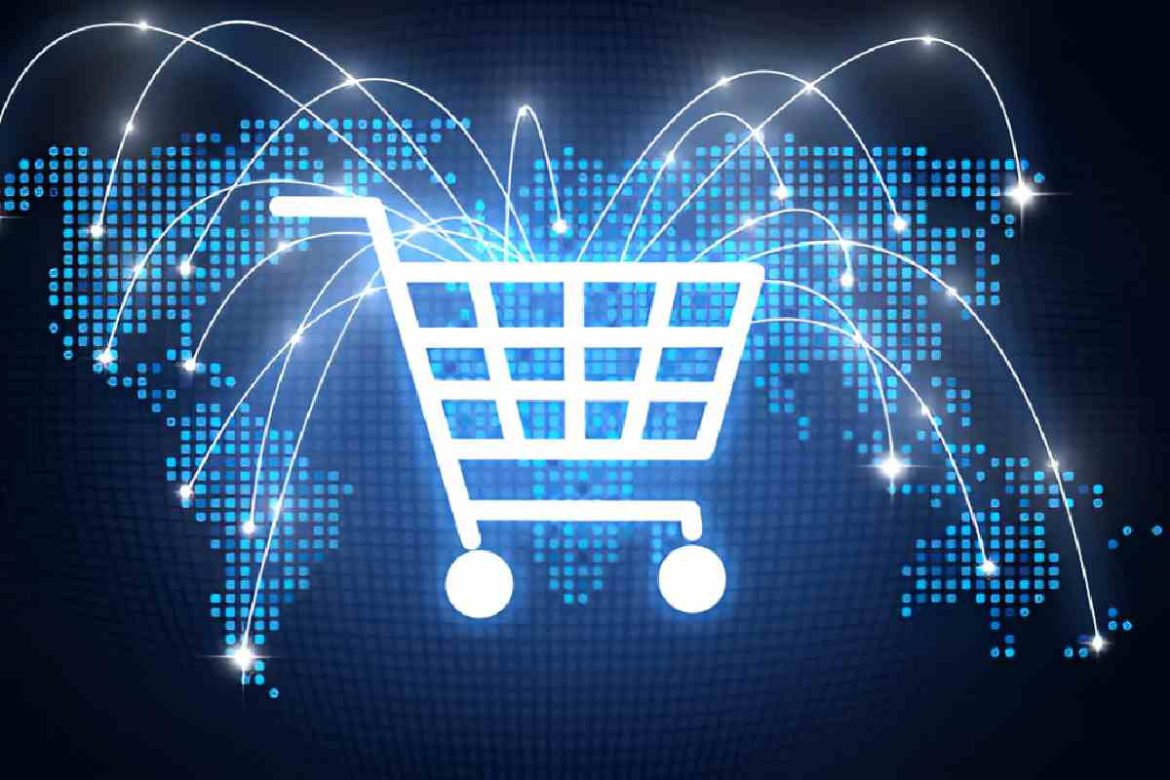The e-commerce industry has undergone significant growth in recent years, accounting for over 20% of all retail sales. However, this expansion has also introduced various challenges due to the digitalization of the global economy and the surge in cybercrime, accelerated by the COVID-19 pandemic. Moreover, the emergence of generative AI technologies has opened up new possibilities and potential risks for online retailers.
In today’s digital landscape, establishing an online presence is crucial for any business. Whether you’re considering investing in an e-commerce platform or already have one, it’s essential to be prepared to adapt to new technologies and market demands. Let’s delve into the current technological trends shaping the e-commerce industry’s future.
Table of Contents
Why E-Commerce Businesses Must Track Technological Trends
Ecommerce development has always been a technology-driven industry. Each major development in the history of e-commerce corresponds to technological advancements: the expansion of personal computers and the internet in the 1990s, the rise of Web 2.0 in the early 2000s, and the widespread adoption of smartphones and mobile applications in the 2010s.
Currently, we stand on the brink of a new digital revolution. Technologies such as artificial intelligence (AI), machine learning, big data, and the Internet of Things (IoT) are rapidly transforming the retail landscape. Online retailers need to prepare for these changes to maintain their competitive edge in the upcoming decade.
Key Technological Trends in E-Commerce
Keeping an eye on tech trends allows businesses to capitalize on new opportunities to automate operations and sales, enhance customer service, cut costs, and improve efficiency. By making use of modern technologies, online sales can become more efficient, secure, and environmentally friendly.
Voice Search
Voice search has become extremely popular, with over half of smartphone users regularly using voice-activated assistants such as Amazon Alexa, Apple Siri, and Google Assistant to search for products and services. According to recent predictions, the value of e-commerce transactions conducted through voice search is expected to surpass $40 billion by 2025. In order to stay competitive, retailers need to optimize their platforms to accommodate voice search capabilities.
Artificial Intelligence
AI and machine learning developments are making a significant impact in the e-commerce industry. These technologies are powering chatbots that can provide automated customer support using natural language understanding. They also generate personalized content and product recommendations and help streamline inventory management. Major retailers like Walmart and Target have already adopted AI to enhance customer experiences and optimize supply chain operations. To remain competitive, retailers must optimize their platforms to incorporate voice search capabilities in their e-commerce development.
Augmented Reality for Products
Augmented reality (AR) tackles a major challenge in e-commerce: customers not being able to physically interact with products before purchasing. Through AR technology, customers can see how products will look in their own space. For instance, IKEA’s app allows customers to virtually place furniture in their homes, and brands like Warby Parker enable users to try on glasses virtually. These immersive experiences build consumer confidence and reduce return rates.
Subscription Models in E-Commerce
Subscription-based models are increasingly common in the world of online shopping. For instance, Netflix has significantly changed how people access media through its subscription service. In e-commerce, companies like Dollar Shave Club and Stitch Fix are gaining popularity by offering personalized subscription services that conveniently deliver products to customers’ homes.
There are three common types of subscription models in e-commerce:
- Exclusive Access– Subscriptions provide access to products or services that non-members cannot access.
- Value-Added Services– Subscribers receive extra benefits or features that regular users don’t have access to.
- Free Shipping– Many subscription models offer members free or discounted shipping, adding to the overall value proposition.
As the market continues to evolve, new subscription models are likely to emerge, offering innovative solutions for consumers.
Personalized Marketing and Products
Targeted advertising is common in e-commerce, but the industry is shifting toward “hyper-personalization.” This method uses data analytics and machine learning to analyze customer behavior and real-time preferences. Brands can then create highly personalized marketing strategies, improving customer engagement and driving conversions. Companies like Amazon and Spotify use recommendation algorithms to customize their offerings for each user, greatly enhancing the customer experience.
Social Commerce
Social commerce is a rapidly growing trend where social media platforms such as Instagram, Facebook, and TikTok are used to facilitate online shopping. These platforms integrate shopping features that allow users to purchase products directly from the app. This trend capitalizes on the massive user bases of social media platforms and their ability to influence consumer behavior. For example, Instagram’s “Shop” feature allows businesses to showcase their products and enable direct purchases without leaving the app. This seamless integration of social media and e-commerce provides a powerful tool for driving sales and reaching new customers.
Wrap-up
The e-commerce industry is rapidly changing, primarily influenced by technological advancements and shifting consumer expectations. Businesses must stay updated on the latest trends to remain competitive and provide outstanding customer experiences. From voice search and AI to augmented reality and subscription models, these trends will significantly impact the future of online retail. Embracing these technologies in e-commerce development will not only enhance efficiency and security but also lead to more personalized and enjoyable shopping experiences.


